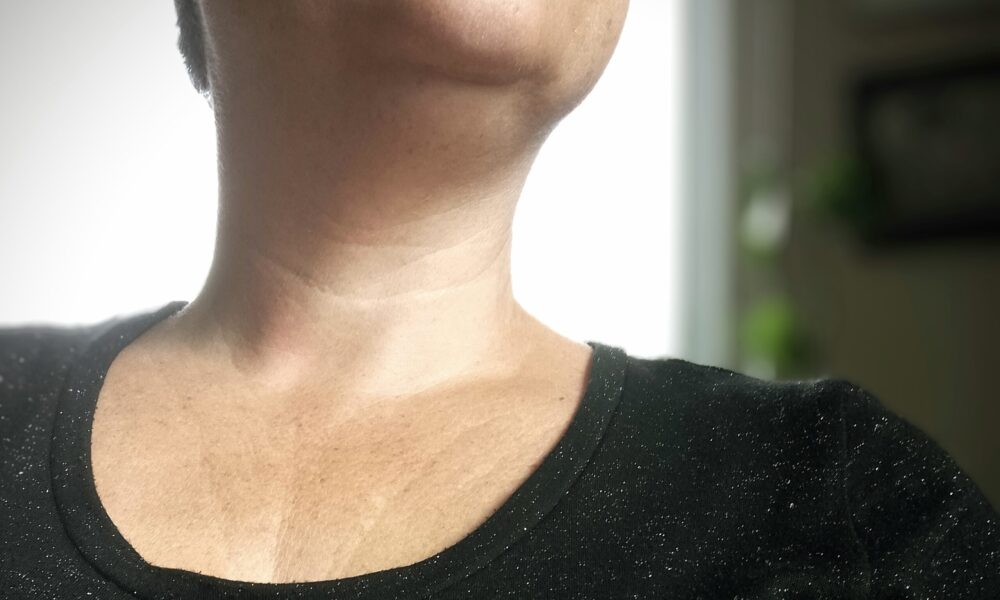English speaking therapy for expats around the world, with face-to-face or outdoor options if you're based in Stockholm, Sweden
I specialise in working with adults and young people with ADHD or autism, mixed culture issues, or difficulties arising from gender, sexual or relationship diversity
I will give you a safe and confidential space to explore your difficulties, at your own pace, in your own time, and using English language
Services available
— 01
One-to-one,
remote therapy
I have full training and extensive experience in video, audio, and SMS therapy, as well as through email for those who may prefer no interruptions, or who struggle with regular time commitments.
— 02
In-person therapy, indoors and outdoors
For those living in Stockholm, Sweden, I offer sessions from a cosy confidential therapy cabin, or outdoor counselling (also known as walk and talk), where we sit or walk in a local nature spot.
Non-walking babies are welcome to attend your session with you.
— 03
Consultancy
I offer consultancy to teachers, carers and parents, around how to support young neurodivergent people at home or in the school environment (e.g. ADHD, PDA, autism).
This is for those that feel they are ‘out of ideas’, or that ‘traditional’ (aka neurotypical) parenting or teaching strategies aren’t working.
Remote sessions available wherever you are; or if you’re in Stockholm, we can book in an in-person session.

I’m Nina
I am a native English-speaking therapist working remotely with expats all over the world, and in-person with clients in Stockholm, Sweden.
I am a UK-accredited Gestalt therapist with 30 years’ experience in the fields of mental health and psychology, and working as a therapist since 2010. I work creatively, using whatever helps you to understand yourself or your situation better.
Although therapy is often available via public health routes, unlike private therapy, it can be a long wait, and it may not cater to your individual needs – such as type of therapy, specialisms, being able to work fluently in English, or the number of sessions offered. I am here to support you if you would prefer greater choice over how, and with whom, you undertake therapy sessions.
Latest Blog Posts
See my latest posts here. You can find all my posts by visiting my blog page directly.
Navigating school and neurodivergence as a parent in Sweden
Finding meaning through life, risk and loss
Supporting your ND kids and young people
Women’s Embodiment – the felt sense of womanhood
Follow me on Instagram
Anyone seen the `updated` version of Barbie. We love this one in our home – far more matching to our own reality.
#autistic #audhd #stuffies #plushies #autisticbarbie #barbie #asd #neurodivergent

Anyone seen the `updated` version of Barbie. We love this one in our home – far more matching to our own reality.
#autistic #audhd #stuffies #plushies #autisticbarbie #barbie #asd #neurodivergent
...
What do we think about Autistic Barbie? 💭
Mattel has introduced Autistic Barbie as part of the Barbie Fashionistas range, developed in collaboration with the Autistic Self Advocacy Network (ASAN) — an organisation led by and for autistic people. That collaboration matters.
Reactions have been mixed. Some are concerned about stereotyping, while others are genuinely happy to see autism represented in such a mainstream, global brand.
No single doll could ever represent the full autism spectrum - and that’s okay. Personally, I see this as a positive step forward. Visibility starts conversations, and conversations build understanding.
Some of the thoughtful design features include (list below taken from ASAN/Barbie FB post):
👋 Articulated elbows and wrists to support stimming
👁️ A shifted gaze, reflecting reduced eye contact for some
✨ A fidget spinner for sensory regulation
🎧 Noise-cancelling headphones to reduce overload
🖊️ An AAC communication tablet
💜 Sensory-sensitive clothing for comfort
It won’t resonate with everyone - autism is not one-size-fits-all - but for many, seeing these needs acknowledged is meaningful.
What’s your take? 💬
#AutisticBarbie #Neurodiversity #AutismRepresentation #ActuallyAutistic #InclusionMatters #RepresentationMatters #AutismAwareness #Neurodivergent #DifferentNotLess

What do we think about Autistic Barbie? 💭
Mattel has introduced Autistic Barbie as part of the Barbie Fashionistas range, developed in collaboration with the Autistic Self Advocacy Network (ASAN) — an organisation led by and for autistic people. That collaboration matters.
Reactions have been mixed. Some are concerned about stereotyping, while others are genuinely happy to see autism represented in such a mainstream, global brand.
No single doll could ever represent the full autism spectrum - and that’s okay. Personally, I see this as a positive step forward. Visibility starts conversations, and conversations build understanding.
Some of the thoughtful design features include (list below taken from ASAN/Barbie FB post):
👋 Articulated elbows and wrists to support stimming
👁️ A shifted gaze, reflecting reduced eye contact for some
✨ A fidget spinner for sensory regulation
🎧 Noise-cancelling headphones to reduce overload
🖊️ An AAC communication tablet
💜 Sensory-sensitive clothing for comfort
It won’t resonate with everyone - autism is not one-size-fits-all - but for many, seeing these needs acknowledged is meaningful.
What’s your take? 💬
#AutisticBarbie #Neurodiversity #AutismRepresentation #ActuallyAutistic #InclusionMatters #RepresentationMatters #AutismAwareness #Neurodivergent #DifferentNotLess
...
Happy New Year everyone, clients, peers and friends. I hope that 2026 brings you closer to the life you want and deserve. ✨☀️
Back to work and digging myself a path to the office! ❄️🌨️

Happy New Year everyone, clients, peers and friends. I hope that 2026 brings you closer to the life you want and deserve. ✨☀️
Back to work and digging myself a path to the office! ❄️🌨️
...
Very tongue-in-cheek… and yet 👀
On a more serious note, breaks can be a great opportunity to get intentional. A little advance thought can go a long way:
✨ What do you actually need from this time?
💕 Who do you genuinely want to spend it with?
🎄 Which routines support you, and which ones might be ready for a shake-up?
Wishing you all a wonderful Christmas break, and a fulfilling, enjoyable, love-filled 2026.
#IntentionalLiving #MentalHealth #Boundaries #SelfAwareness #HolidayReflections #Wellbeing #PersonalGrowth #ChristmasBreak #NewYearAhead
(Not sure who to credit with the photo, as I cannot for the life of me remember when or where I saw it - if it is yours, please let me know - image shows a card that says "I hope all the quality time with family doesn`t ruin all the work you did in therapy.")

Very tongue-in-cheek… and yet 👀
On a more serious note, breaks can be a great opportunity to get intentional. A little advance thought can go a long way:
✨ What do you actually need from this time?
💕 Who do you genuinely want to spend it with?
🎄 Which routines support you, and which ones might be ready for a shake-up?
Wishing you all a wonderful Christmas break, and a fulfilling, enjoyable, love-filled 2026.
#IntentionalLiving #MentalHealth #Boundaries #SelfAwareness #HolidayReflections #Wellbeing #PersonalGrowth #ChristmasBreak #NewYearAhead
(Not sure who to credit with the photo, as I cannot for the life of me remember when or where I saw it - if it is yours, please let me know - image shows a card that says "I hope all the quality time with family doesn`t ruin all the work you did in therapy.")
...
This post is for anyone raising a neurodivergent child in Sweden - expat, mixed-language, or just feeling a bit lost. Here’s a recap of a recent session I ran on working with schools: understanding the rights of your children, understanding the duties of schools, and understanding some of the limitations of schools.
On this blogpost, you can download some notes I made during the meeting, as well as some ideas for how to support your child in school.
https://ninekeys.eu/navigating-school-and-neurodivergence-as-a-parent-in-sweden/
#Neurodivergent #NDParenting #AutismSupport #ADHDSupport #SwedishSchools #ExpatLife #ParentingInSweden #SchoolSupport #InclusiveEducation #FamilySupport

This post is for anyone raising a neurodivergent child in Sweden - expat, mixed-language, or just feeling a bit lost. Here’s a recap of a recent session I ran on working with schools: understanding the rights of your children, understanding the duties of schools, and understanding some of the limitations of schools.
On this blogpost, you can download some notes I made during the meeting, as well as some ideas for how to support your child in school.
https://ninekeys.eu/navigating-school-and-neurodivergence-as-a-parent-in-sweden/
#Neurodivergent #NDParenting #AutismSupport #ADHDSupport #SwedishSchools #ExpatLife #ParentingInSweden #SchoolSupport #InclusiveEducation #FamilySupport
...
UPDATE: I am honoured to have received more than enough replies now, and all slots have now been filled, so thank you for your responses! 🙏
I am working my way through emails, so if you see this update before I have replied to you, please don`t worry - I am getting there, and you have not missed out.
**
Calling UK-trained counsellors and therapists - especially fellow ND practitioners (suspected or diagnosed)!
As I complete my supervision course, I’m opening up a few spots to offer free supervision.
I have space for a 3-4 supervisees and can offer up to three free 121 sessions each (60 or 90 minutes). Sessions can be held in person in Järfälla or online.
I’m Gestalt-trained, though my supervision training enables me to work across modalities. I specialise in work with ADHD and autistic clients, and would be especially happy to support ADHD and autistic therapists in their practice - you do need to be a current member of a UK ethics body too.
If you’re interested, feel free to drop me a message!

UPDATE: I am honoured to have received more than enough replies now, and all slots have now been filled, so thank you for your responses! 🙏
I am working my way through emails, so if you see this update before I have replied to you, please don`t worry - I am getting there, and you have not missed out.
**
Calling UK-trained counsellors and therapists - especially fellow ND practitioners (suspected or diagnosed)!
As I complete my supervision course, I’m opening up a few spots to offer free supervision.
I have space for a 3-4 supervisees and can offer up to three free 121 sessions each (60 or 90 minutes). Sessions can be held in person in Järfälla or online.
I’m Gestalt-trained, though my supervision training enables me to work across modalities. I specialise in work with ADHD and autistic clients, and would be especially happy to support ADHD and autistic therapists in their practice - you do need to be a current member of a UK ethics body too.
If you’re interested, feel free to drop me a message!
...
If you don’t have something you need or want, create it.
In the small things as well as the big.
I`ve been missing taramasalata so much over our four years in Sweden, so I finally got round to making some myself, and this morning, with the winter sun shining through our windows, I am carving out a moment of bliss for myself.
#taramasalata #breakfast #selfcare #meetingneeds #therapist #stockholmtherapist #foodie

If you don’t have something you need or want, create it.
In the small things as well as the big.
I`ve been missing taramasalata so much over our four years in Sweden, so I finally got round to making some myself, and this morning, with the winter sun shining through our windows, I am carving out a moment of bliss for myself.
#taramasalata #breakfast #selfcare #meetingneeds #therapist #stockholmtherapist #foodie
...
Wondering how everyone is getting on with the darker days? 😊
Here in Stockholm, after a gloomy damp month, fairy lights are starting to go up, we got sunshine and it dropped to -8°C.
It`s now warmed up again, and we have the first smatterings of snow. First time this season of clearing a path to my cabin!
#englishtherapistinstockholm #stockholmtherapy #adhd #autism #stockholmwinter #sad #winterblues

Wondering how everyone is getting on with the darker days? 😊
Here in Stockholm, after a gloomy damp month, fairy lights are starting to go up, we got sunshine and it dropped to -8°C.
It`s now warmed up again, and we have the first smatterings of snow. First time this season of clearing a path to my cabin!
#englishtherapistinstockholm #stockholmtherapy #adhd #autism #stockholmwinter #sad #winterblues
...





